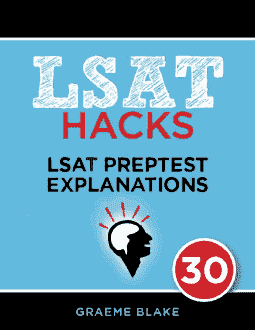QUESTION TEXT: The judgment that an artist is great always rests on…
QUESTION TYPE: Flawed Parallel Reasoning
CONCLUSION: The fact that an artist is great provides no basis for predicting whether their future works will be great.
REASONING: Greatness is based on the quality of the artist’s past works. A series of great works is the only indicator of greatness.
ANALYSIS: It is true that the past is not a guarantee of the future. A great artist may produce terrible work in the future. But if someone has produced ten amazing paintings then that does provide some indication that they’re capable of doing it again.
The past can suggest what the future will be like even if it cannot guarantee it.
The argument’s flaw is that it confuses two things. It is correct to say that the past does not guarantee the future. But it is wrong to say that the past cannot help predict the future.
___________
- CORRECT. If someone has cold symptoms they will probably keep having cold symptoms for a little while, even if there is no strict guarantee that they will keep having cold symptoms.
- This is a good argument. There must be some physical reason that certain people avoid colds.
- This argument is sort of ok. It correctly states that having been infected with one strain of the virus does not guarantee against infection in the future because there is a very large number of strains. But it ignores the possibility that if you catch 10 colds in a year you’re pretty likely to catch more than average in the future.
This isn’t quite like the stimulus since half of its reasoning is good. - This is a good argument. We never know for sure what kind of cold a person has so we can’t say exactly what the effects will be.
- This is a bad argument because it might be the case that no other disease ever produces all of the symptoms of a cold all at once.


Leave a Reply